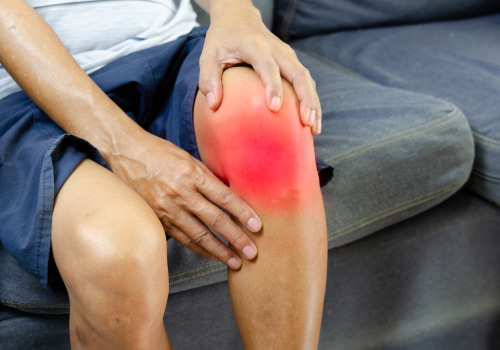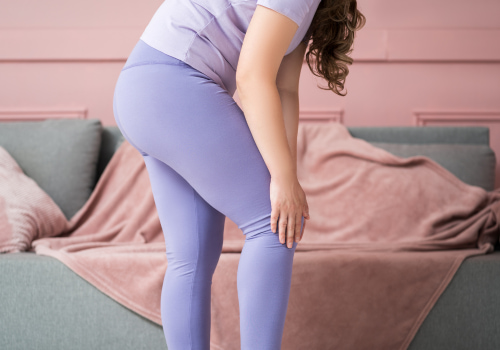Knee pain and overweight challenges are directly related. The extra weight you carry puts additional strain on your knees, causing wear and tear of the joint and causes pain. The adipose tissue also produces substances that contribute to inflammation and worsen knee pain. The relationship between knee pain and overweight can address the factors that trigger this pain and other issues surrounding it that affect the body, as explained in this article.
Overweight Knee Pain Symptoms
The symptoms you can experience from overweight knee pain can manifest in different ways, and they include:
- Pain at the front of the knee during and after activity.
- Swelling and feelings of stiffness.
- Decreased range of motion that makes it difficult to extend or flex the knee fully.
- Increased pain after long periods of inactivity.
- Feeling unstable when walking.
- Pain when bending your knee or moving up and down the stairs.

Knee Problems From Being Overweight
Being overweight increases the strain on the knee joint and cartilage that protects the joint. When walking, the force on the knees of people who are overweight or obese is three to four times greater than their body weight. The force increases as you engage in certain activities, for instance, descending stairs or bending to pick up an object. This pressure increases the likelihood of knee pain and joint degeneration. It can lead to knee problems from being overweight, such as stiffness, decreased function, and discomfort, as well as increasing the risk of acquiring osteoarthritis (OA).
Also, being overweight can increase joint inflammation. The abundance of fat cells can impact chemical levels in the blood, which causes knee inflammation and accelerates the onset of OA.
Ways to Reduce Knee Pain Issues Associated with Being Overweight
Following a weight loss regimen is the most significant way to reduce the dangers of knee pain and being overweight. Losing weight alleviates knee tension and lowers the risk of OA and knee problems.
Light workouts like swimming and brisk walking that don’t put a lot of strain on the knees can be the first steps in a regular fitness regimen and increase your endurance. The body will get stronger, and weight will drop with regular activity.
Strengthening the muscles surrounding the knee and thighs can be achieved by muscle resistance exercises, such as weight training, which minimize joint stress.
Also, you can manage your food intake and ensure that you eat in moderation. Always ensure you eat foods rich in protein and eat a low-carb diet. You should avoid processed products and set realistic dieting goals.
Get enough sleep to help you control ghrelin, the hormone responsible for controlling your feeling of hunger, and leptin, the hormone responsible for letting you know you’re full. Reduced sleep is associated with decreased leptin levels that heighten ghrelin levels.
You can also use heat therapy to relieve your pain by applying a heating pad or taking a warm shower to relax your muscles around the knee joint. You can also use cold therapy by using ice packs or cold compresses that reduce inflammation and swelling.
How Weight Loss Helps with Overweight Knee Pain
When you lose a significant percentage of your weight, you can reduce your symptoms of knee pain. Many people have stiff and painful knees as the tissue inside the knee joint has deteriorated. The breakdown of the cushion of this tissue may cause the knee to swell, especially if you’re overweight.
You can modify your diet to include lean proteins, vegetables, fruits, and whole grains, and choose gentle exercises on the knee. So, when you exercise and diet to lose weight, you can experience overweight knee pain relief.
If the pain doesn’t go away, you can seek advice from a pain medicine specialist and receive anti-inflammatory medication, pain medication, and even injections that offer overweight knee pain relief.
You can also seek professional guidance from a personal trainer or registered dietitian who has experience working with individuals with knee pain.

Address Overweight Knee Pain Symptoms
At Spatz we know that the relationship between knee pain and overweight shows how weight can influence pain due to the pressure exerted on the knee. Understanding the symptoms and how to reduce them using weight loss can contribute to overweight knee pain relief.


